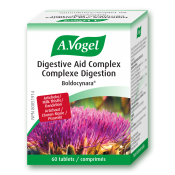They start to break down the particles containing water, urea, salts, and sugars into agents known as thioalcohols. These compounds are responsible for the strong odours of onions, garlic, and partially skunk spray. Before they get a bad reputation though, these compounds are also added to normally odorless gasses to assist in detecting leaks or warning us that some gas is being released near us.
What is the role of the scent?
While many are repulsed by the scent of strong body odor, it represents one of the ways our body can communicate with us. People are generally familiar with their day to day smell, and how that changes after physical activity or coming home at the end of a work day. Any shift in an individual’s normal scent could be telling you something!
How is body odor caused?
This is especially important when children are taken into consideration. All humans have two types of sweat glands. The first are known as eccrine glands and can be found all over the body, and especially the hands and feet. These ones are important for maintaining body temperature and can secrete litres of sweat every single day! They mostly secrete water that evaporates and cools the body, but when they become hyperactive, this is a condition known as hyperhydrosis.
The other sweat glands are the apocrine glands, found mostly in the armpit and groin regions. When the hormonal storm known as puberty strikes, these become highly active – leading to the wrinkling of your nose every time you enter your teenage child’s room. The sweat released by these glands contain a variety of compounds in addition to water such as lipids (fat molecules) which serve as delicious food for the bacteria. So if you have a smelly pre-pubescent child, it’s worth making a trip to your primary care provider.
A familiar saying is you are what you eat, but how about you smell how you eat?
Think of your body like a factory that never stops working. There are millions of processes going on in the countless cells of the body. Heating, cooling, moving muscles, burning fuel, storing fuel, processing stimuli, creating new cells, getting rid of old ones and then breaking them down and dealing with the waste…the list goes on and on.
When you ingest foods, they are formed of starches, fats, sugars, and proteins. The body processes these in a variety of ways to ensure it gets the fuel that it needs. Some of these foods contain components that are absorbed and then released through the skin.
What foods are causing me to stink up?
One of the biggest culprits is red meat as shown in a 2006 study by Havlicek and Lenochova. Men who went without meat for two weeks were rated as having a more pleasant body odor than those who consumed meat.
Now what’s a big juicy steak without a glass of red wine to wash it down? Despite how delicious that may be, it is unfortunately a recipe for an unpleasant odor. When you consume alcohol, the body treats it like a toxin, sending it to the liver where it gets broken down into acetic acid. While most of the drink is metabolized, some of it escapes through your pores and breath and leads to the unpleasant stench that lingers after overindulging.
Unsurprisingly, garlic and other sulfur containing foods such as curry, cumin, and onion contribute to the odor. Garlic contains a sulfur compound called allicin, which serves as a powerful antioxidant but also provides some delicious food to our bacterial friends waiting in the sweat glands. The bacteria then release all those sulfurous gases out of our pores and out into the environment. Unfortunately, heat also speeds up the metabolic processes of the bacteria, meaning they begin breaking down these stinky compounds at a faster rate. Areas of higher heat such as the armpits and groin are more likely to become a source of body odor.
There is hope though! Efficient digestion.
Poor digestion can cause an imbalance in the bacteria in our gut, causing them to work harder and produce more incomplete byproducts. The body has a harder time dealing with these and will allow them to be released through skin pores. Step one is chewing your food in order to break it down as best you can. Ensuring you have an active metabolism can also help the digestive system process foods, leading to fewer wasteful byproducts and increasing the absorption of vitamins, proteins, and fuel for the body.
Even the most effective digestive system may need a helping hand every now and again though. Herbs such as dandelion (Taraxacum officinale), globe artichoke (Cynara scolymus), milk thistle (Silybum marianum), and boldo (Peumus boldos) have been shown to have powerful effects on the gastrointestinal system.
Dandelion has been shown to protect against liver toxicity, ensuring easy digestion of toxins and controls the generation of fat, decreasing lipid and triglyceride accumulation.
Globe artichoke improves glucose tolerance and reduces the loss of cellular glutathione, one of the most major antioxidants in the human body. This ensures that toxic substances such as alcohol are handled more efficiently before they reach your skin and the nose of your significant other.
Milk thistle has long been hailed as a potent liver protector, ensuring that it continues its role in the metabolism of fats, proteins, and carbohydrates unimpaired.
Finally, boldo influences the gallbladder, an organ that releases bile salts that emulsify fat droplets. This causes them to become smaller and smaller, allowing the bacteria in the gut to process and metabolize them more efficiently, helping to prevent too many ‘smelly’ compounds.
Luckily, products like a Digestive Aid Complex contain all four of these in an easy to swallow tablet. These herbs may exacerbate a digestive condition involving the gallbladder or liver, so always ensure you consult your primary care provider when starting a new natural health product.
References:
https://www.ncbi.nlm.nih.gov/pmc/articles/PMC4414724/
https://www.ncbi.nlm.nih.gov/pmc/articles/PMC5508982/
https://www.ncbi.nlm.nih.gov/pubmed/167554
https://www.ncbi.nlm.nih.gov/pubmed/9194411
https://www.ncbi.nlm.nih.gov/pubmed/16891352
https://www.ncbi.nlm.nih.gov/pubmed/22888009
https://www.ncbi.nlm.nih.gov/pubmed/25015447
https://www.ncbi.nlm.nih.gov/pubmed/26019632
https://www.ncbi.nlm.nih.gov/pubmed/26785346
https://www.ncbi.nlm.nih.gov/pubmed/28647180
https://www.ncbi.nlm.nih.gov/pubmed/29736939





